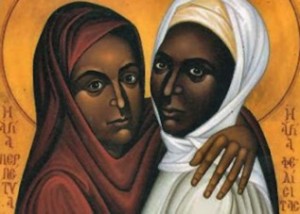This week’s Torah portion, Shemot, marks the beginning of the book of Exodus—and the
liberation of the people Israel from Egyptian bondage. Strikingly, the first steps of that
liberation are all taken by women. Shifra and Puah, the midwives to the Hebrews,
perform the first recorded act of civil disobedience, refusing to follow
Pharaoh’s edict to kill all male children born to Israelite women. A few verses later, Moses’ mother, Yocheved,
defies Pharaoh by hiding her son and sending him down the Nile in a basket—where
he is rescued and then raised by Pharaoh’s own daughter, who our Rabbis name
Batya, “daughter of God.” And finally,
Moses’ sister, Miriam, appears to Batya and offers to secure a wet nurse, who
just happens to be Moses’ own mother.
What do we learn from these heroic women? Writing in The Torah: A Women’s Commentary, Dr. Susan Niditch notes: “The
presence of these five women—who collaborate with each other across ethnic,
class, and religious lines—is immensely significant. Deeply wise in fundamental, life-sustaining
ways, these women understand instinctively that Pharaoh should be disobeyed;
and, with initiative, they act on this knowledge. Ultimately, these women’s defiance demeans
the male tyrant. Thus, from these women
filled with a power rooted in moral reason, an ethical concern for life, and
the capacity to empathize, we learn a valuable lesson in political ethics: the
very weakest in society can contribute to liberation by judiciously engaging in
acts of civil disobedience.”
“Ultimately, these
women’s defiance demeans the male tyrant.”
Dr. Niditch’s insight here is especially timely as we begin both a
new secular year and a new book of the Torah.
2017 began with the Women’s March in Washington and across our nation,
and ended with the #metoo movement. Now,
more than ever, we need the voices of strong women to disrupt the status quo
and bring justice to a culture seething in vulgarity, bigotry, and
inequity. And we men should welcome
their leadership and join with them to create a better state, nation, and world—much
as our ancestors did millennia ago.

1 comment:
The Great Binding Law of the Iroquois Nation (1142-1450??) is one of the first clearly articulated role models for women in America. It is worthy of a little study for those of us who support the oneness of humanity.
Post a Comment